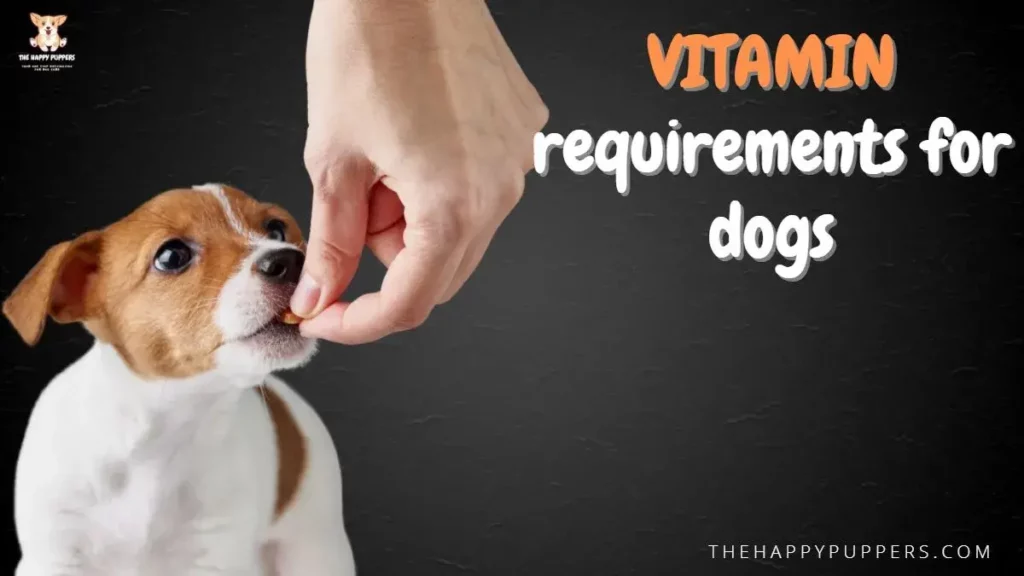Brought home a new puppy? Do you need to know what supplements are required? Then you are at just the right place. Read the full blog post to understand what your puppy really needs.
Adults are not the only ones who need dietary supplements or vitamins. Your dogs or puppies are in very much need of the same. Most common dietary supplements which are used by dog guardians are multivitamins to support the arthritic joints dogs, fatty acids to cause reduction in shedding and improvement in the coat shine, probiotics to reduce or alleviate gastrointestinal problems and finally antioxidants to counteract the effects of old age like cognitive dysfunction.
As per the latest research, there is a growing population of overweight as well as aging dogs that has led to an increase in the requirement of supplements by around 37% by the year 2012.
Let’s find the answers to a few burning question that generally hovers on every dog guardians mind:
1. Is vitamin supplementation necessary for my dog?
In case you provide your dog the commercially processed dog food, then your dog most likely receives a complete and balanced diet which includes all the necessary minerals and vitamins from his diet itself. However, in case you are administering your dog the homemade diet, it is absolutely critical that you provide all necessary vitamins and mineral supplements separately to your dog. The amount of the vitamin and mineral supplement provided to your dog must match your dogs diet. To understand how much supplement your dog needs you must contact your veterinarian.
2. Is there any danger if I am administering vitamins to my dog?
If your dog is already eating a balanced diet and you are separately administering vitamins to him or her, then the excess portions of certain minerals and vitamins can be harmful as per the FDA and the veterinarians
If you provide your dog too much calcium, it can lead to skeletal problems specially if your dog belongs to the large breeds. If you provide too much vitamin A to your dog, it can harm the blood vessels and cause joint pain and dehydration. Excess levels of vitamin in the blood can cause a dog to stop eating, may cause the muscles to undergo atrophy and harm the bones.
3. Should I consult my before I start to supplement my dog’s diet?
The answer to this is a huge YES! You must always consult with your vet before starting your dog on any new type of vitamin mineral supplement. It has been observed that sometimes symptoms which may look like your dog is suffering from arthritis like dog with a weak hip could instead turn out to actually be a neurological problem. If your dog is suffering from a poor skin condition, it could also be indicative of a skin, hormonal or metabolic problem. This it is imperative that you consult your vet before starting your dog on any kind of supplement.
Ingredients which are present in your dog’s supplement, specially the herbal kind can actually interfere with any other medication that your dog is on. Most of the veterinarians say that if your dog is on a balanced and complete diet and is otherwise healthy with no visible problems, they do not actually need any kind of supplementation. For those dog guardians who want to provide the dogs with some extra nutrients, they can always add fruits and vegetables to their dogs diet.
4. Do dog supplements actually work?
The working of a Docs supplement primarily depends on how the supplement was manufactured, whether the rights also produced or not and whether the quality of manufacture was good. Since clinical trials are rare in case of pet supplements, it is hard to find perfect supplement for any condition.
glucosamine-chondroitin-based supplements are most commonly given to dogs who suffer from osteoarthritis. This is one supplement which has been tested in case of humans as well as animals. It has been observed that because I am in confidence Alfred reduces the pain and increases the mobility after 70 days of treatment. However in case of other clinical trials the same effects could not be replicated.
Fish oil supplements are probably the ones which can be used without your vet approval since they make the coat shinier and are generally good for the skin. Fish oil supplements have also been observed to reduce the inflammation as per a study which was published in the American Journal of veterinary research.
Antioxidants like vitamin C and E have also been observed to reduce inflammation and can help senior dogs with memory recall. However, these have not been tested for long-term safety in case of dogs.
5. Do nutritional supplements for dogs contain the nutrients promised in the label?
Unfortunately when glucosamine and chondroitin sulphate supplements were tested for both pets and humans, 60% of the products for dogs failed the test compare to 25% of the products which were manufactured for people.
The national animal supplement Council has also checked nutritional products for dogs and have observed that 25% do not meet the claims made on the label.
6. Which is the governing body which regulates dog vitamins and supplements?
The dog vitamins and supplements are regulated by the FDA. However, the National Animal Supplement Council is addresses the concerns regarding labelling guidelines and reporting supplements which do not meet the amount of ingredients promised on the label.
7. As a dog guardian how should I choose a supplement for my dog?
Here are a few tips from veterinarians and those who work in the field of supplement testing. Remember these tips when you choose a supplement for your dog:
- Go for a brand which is specialised in only one area or who have clinical studies to back up their claims
- Always read labels carefully. Focus carefully on the ingredient which you are looking for, so that you don’t get fooled by their similar looking products.
- Always check for the lot number, presence of a lot number indicates that the company has quality control checks in place.
- Check for the contact number of the company on the label. You can go one step further and call the company to find out who formulated the product, how long has the manufacturer been in business and how much expertise do they have in the field.
- Be extra careful of the claims that sound too good to be true. Some companies claim that their products can alleviate diseases like hip dysplasia, parvovirus and cancer. Do not fall for such false promises.
- Look for certification from a governing body which checks supplements.
- Never give your dog any human supplements.
- Either try to know the seller or buy the supplement from your veterinarian’s office. Surveys have shown that such supplements cause less problems in the long run.
8.What about the supplements which are present in the commercial dog food?
The general dog food which is available in the market contain vitamins and supplements but these are not up to the level of therapeutic dose in case your dog is suffering from any type nutritional deficiency.
However, in case your dog is on a prescription dog food, these are supposed to have therapeutic levels of supplements. If you still feel that your dog is in need of more supplements, have a discussion with your vet first before starting your dog on any new supplement.
Do you administer any vitamin or mineral supplements to your dog? If yes, then write your experiences in the comment section below. If you want to share your stories with my readers, please contact me on any of my social media channels.


